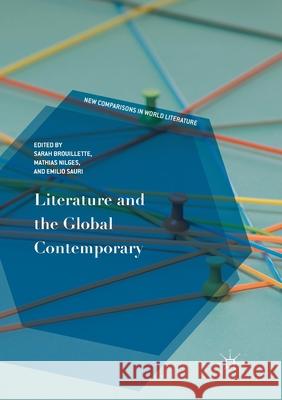Literature and the Global Contemporary » książka
topmenu
Literature and the Global Contemporary
ISBN-13: 9783319874647 / Angielski / Miękka / 2018 / 201 str.
Kategorie:
Kategorie BISAC:
Wydawca:
Palgrave MacMillan
Seria wydawnicza:
Język:
Angielski
ISBN-13:
9783319874647
Rok wydania:
2018
Wydanie:
Softcover Repri
Ilość stron:
201
Waga:
0.29 kg
Wymiary:
21.01 x 14.81 x 1.3
Oprawa:
Miękka
Wolumenów:
01
Dodatkowe informacje:
Wydanie ilustrowane











